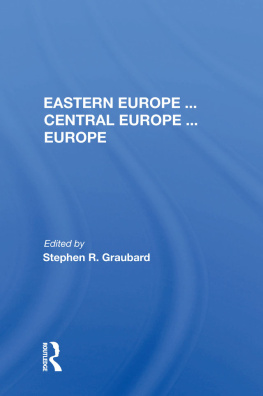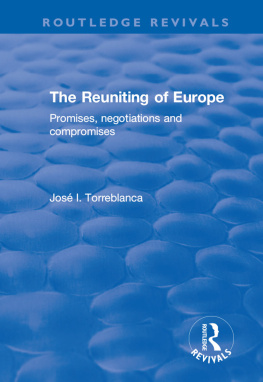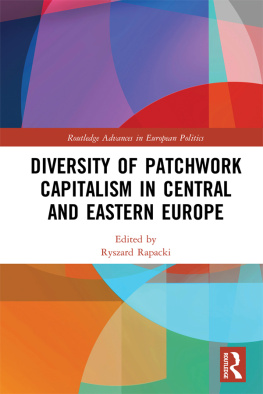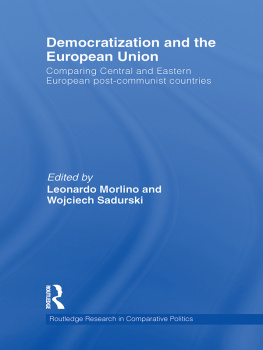EMERGING FRONTIERS IN THE GLOBAL ECONOMY
EDITOR
J.P. Singh
SERIES BOARD
Arjun Appadurai
Manuel Castells
Tyler Cowen
Christina Davis
Judith Goldstein
Deirdre McCloskey
GLOBALIZATION UNDER AND AFTER SOCIALISM
The Evolution of Transnational Capital in Central and Eastern Europe
BESNIK PULA
STANFORD UNIVERSITY PRESS
STANFORD, CALIFORNIA
Stanford University Press
Stanford, California
2018 by the Board of Trustees of the Leland Stanford Junior University. All rights reserved.
No part of this book may be reproduced or transmitted in any form or by any means, electronic or mechanical, including photocopying and recording, or in any information storage or retrieval system without the prior written permission of Stanford University Press.
Printed in the United States of America on acid-free, archival-quality paper
Library of Congress Cataloging-in-Publication Data
Names: Pula, Besnik, 1975 author.
Title: Globalization under and after socialism : the evolution of transnational capital in Central and Eastern Europe / Besnik Pula.
Other titles: Emerging frontiers in the global economy.
Description: Stanford, California : Stanford University Press, 2018. | Series: Emerging frontiers in the global economy | Includes bibliographical references and index.
Identifiers: LCCN 2017055038| ISBN 9781503605138 (cloth : alk. paper) | ISBN 9781503605985 (epub)
Subjects: LCSH: GlobalizationEconomic aspectsEurope, EasternHistory. | Europe, EasternEconomic conditions1945 | Europe, EasternEconomic policy19451989. | Europe, EasternEconomic policy1989 | Europe, EasternForeign economic relations.
Classification: LCC HC244 .P97 2018 | DDC 332/.04240943dc23 LC record available at https://lccn.loc.gov/2017055038
Typeset by Newgen in 10/14 Minion Pro
To my parents, Bardh and Lule, for their love and support.
Contents
Introduction
The reigning image of state socialist economies as they existed during the second half of the twentieth century is that of fully closed, autarchic systems. Today, by a number of measures, including dependence on foreign direct investment (FDI), export specialization, and the dominance of transnational corporations (TNCs) in the local economy, the ex-socialist economies of Central and Eastern Europe are among the most globalized in the world. Was the socialist past merely an obstacle these countries needed to overcome to join the global economy? Or, did socialism instead lay the groundwork for the regions present-day globalization? Globalization Under and After Socialism tackles this puzzle through an analysis of institutional reform and globalization in the East European ex-socialist economies from the 1970s through the first decades of the twenty-first century. Specifically, I focus on what are today known as the Central and East European states. The geographical designation of Central and Eastern Europe has varied usages. In this book I include Bulgaria, the Czech Republic, Hungary, Poland, Romania, Slovenia, and Slovakia. The historical sections also discuss Yugoslavia, Albania, the German Democratic Republic (GDR), and the Soviet Union, but these cases receive uneven and partial attention. The term East Europe is used more broadly as a designation for the ex-socialist states of Europe.
The ex-socialist economies would seem to represent some of the worlds most unlikely places for the emergence of transnationally integrated economies. Indeed, by most accounts, the legacy of socialist industrialization was a burden that needed to be overcome rather than a basis to advance the regions political and economic transformation. Could institutional developments in the area of trade, technology, and international economic cooperation during the socialist era have in fact laid the basis for the regions globalization? This book aims to argue precisely that, showing how trade and reform policies during the socialist period created the organizational and institutional basis for the regions economic globalization in the 1990s and 2000s, and that history has much to do with where these states stand today in the global economy.
What has East Europes globalization looked like, and why does it matter? The fall of Communist Party rule in East Europe after 1989 unleashed one of the greatest experiments in economic reform in modern history. In a moment of exuberance, analysts declared the victory of capitalism and liberal democracy, even that the world had reached the end of history (Fukuyama 1992). Economic reforms, many designed with the aid of Western advisors, aimed at implementing markets in ways that would radically reshape the formerly centrally planned systems. A burgeoning academic literature grew around the problem of transition, a powerful organizing concept that was soon embodied in international financial institutions such as the European Bank for Reconstruction and Development (EBRD), established for the specific purpose of financing and monitoring East Europes transformation. For the EBRD and others, one of the main organizational tasks in relation to the newly anointed transition economies became the benchmarking of transition, with the regions past quickly fading into the background and standardized quantitative indicators of an idealized market economy model used to measure the regions progress. In academic debates, as well, for a considerable period, the legacies of socialism dropped from view. When spoken of they were described largely in negative termsobstacles that had to be overcome if democracy and markets were to be implemented successfully. This left the impression that the trajectory of postsocialist states and economies had much to do with what their politicians did, but very little to do with where their institutions and economies came from.
In making these remarks, my aim is not to take the opposite viewthat is, to glorify the socialist past or ascribe it undue merit for a future its bearers neither envisioned nor intended. Instead, my goal is to present an empirically nuanced and theoretically attentive argument on what about socialism did matter in the making of postsocialist economies. The focus on globalization is not arbitrary. Indeed, I show that the origins of East European globalization are to be found in the socialist experience. That is, the prevailing feature of present-day Central and East European economies, their reliance on FDI and the depth of the transnational integration of their key industries, was a process whose development was laid out during institutional reforms these states undertook in the 1970s and 1980s, as they attempted to gain access to, and better integrate with, Western trade, finance, and production. The experience of that period laid the groundwork for the regions future transformation and the patterns of postsocialist development that emerged in the early twenty-first century.
Suggesting that the structural conditions for Central and East Europes globalization were laid out during the socialist period is not an effort to remove contingency and politics from the picture or to present a linear and evolutionary narrative of change. Indeed, the making of globalized economies was infused thoroughly by the political choices made by successive (socialist and postsocialist) political elites; moreover, different paths of integration with the global economy have had divergent outcomes for domestic institutional development. From this general perspective, then, I take a historical-institutionalist view on the transformation of socialism. The familiar themes of institutional stickiness, path dependence, cumulative causality, and unintended consequences pervade the analysis. Rather than the transition view of equal starting points where all ex-Communist states and societies enjoy equal opportunity in benefiting from globalization, the historical view taken here shows that starting points to globalization were not the same and that, in that game, some already had a head start. More regionally and historically informed analysts acknowledge this. What this book does is take a comparative and historical approach to identify what exactly about the experience of socialist industrialization made countries different in organizational and institutional terms, and how that mattered causally. Ultimately, in Central and Eastern Europe the question is not
Next page





